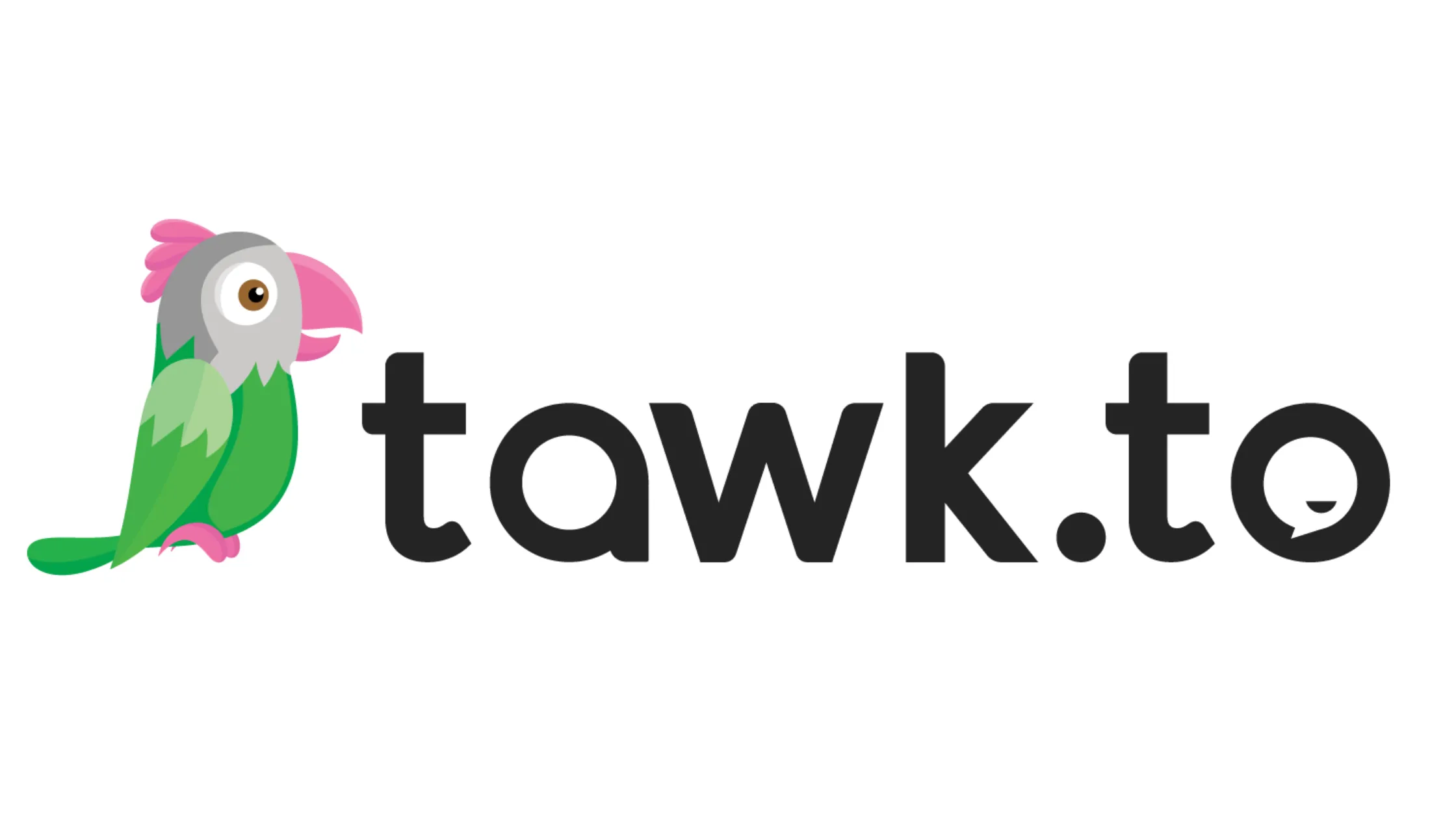
What is a Term Sheet?
Learn the essentials of term sheets in this beginner-friendly guide for startup founders, covering key terms, negotiation tips, and common pitfalls to avoid.
As a startup founder, navigating the investment landscape can feel like an entirely different world. One of the key documents you’ll encounter early on is the term sheet. If you're new to fundraising, you might wonder, “What’s a term sheet, and why does it matter so much for my startup?”
In short, a term sheet outlines the key terms and conditions of a proposed investment. It’s the foundation upon which the formal legal documents will be built, setting the tone for your relationship with investors. For many founders, it’s their first exposure to serious negotiations with venture capitalists or angel investors. And while it’s not legally binding in most parts, it’s critical to understand what’s inside and how it impacts your startup in the long run.
What Is a Term Sheet?
The Basics
A term sheet is essentially a blueprint for the future legal agreement between your startup and potential investors. It outlines the terms under which an investor will invest in your company. Think of it as the framework for your business deal, covering things like valuation, investment amount, equity distribution, and other crucial conditions.
While most term sheets aren’t legally binding, they reflect the intention of both parties. Once you sign a term sheet, it signals that you and the investor are ready to move forward with the deal, which will eventually be finalized in a binding contract.
Key Elements of a Term Sheet
1. Valuation
Valuation is one of the most important parts of any term sheet. It refers to the value assigned to your startup, which ultimately determines how much equity you’ll give up in exchange for the investment. Typically, this is broken down into pre-money and post-money valuations:
- Pre-money valuation: The value of your company before the investment.
- Post-money valuation: The value after the investment is factored in.
As a founder, you’ll need to strike a balance between securing enough capital for growth and maintaining control of your company. Valuation directly influences your ownership stake, so it’s important to know your worth and be prepared to negotiate.
2. Investment Amount
This section is pretty straightforward—how much money the investor is putting into your startup. However, it’s crucial to understand what the investment is actually for. Is it equity financing (in exchange for ownership) or a convertible note (debt that may convert to equity later)? The structure of the investment can have a lasting impact on your company’s financial health and future fundraising rounds.
3. Equity Distribution
When an investor puts money into your startup, they’ll expect ownership in return. This is where equity distribution comes into play. A typical term sheet will outline:
- How much equity the investor will receive.
- How the cap table (the breakdown of ownership) will look post-investment.
It’s vital to ensure you’re comfortable with how much of your company you’re giving up and the influence your new investors will hold. Remember, this is your company—you want to keep enough control to drive the business in the direction you envision.
4. Liquidation Preferences
Liquidation preferences determine how the proceeds will be distributed in the event of an exit (e.g., acquisition or IPO). Investors often request liquidation preferences to protect their investment, ensuring they recoup their money before common shareholders (including founders) see any returns.
For instance, a 1x liquidation preference means that the investor will get their full investment back before anyone else is paid. While this is a standard ask, you want to watch out for participating liquidation preferences, where investors not only get their investment back but also participate in any remaining proceeds—this can significantly reduce your payout.
5. Board Structure and Control
This part of the term sheet dictates how your board of directors will be structured and who will hold decision-making power. Many investors will ask for a board seat, which can influence major business decisions moving forward.
For founders, retaining control over the board is key to maintaining your vision. Negotiating board control carefully is essential, as it will dictate how much sway investors have over the strategic direction of your startup.
6. Vesting Schedules
Vesting schedules define when and how founders and key employees earn their equity over time. Most term sheets will include a 4-year vesting schedule with a 1-year cliff, meaning you won’t earn any equity until after a year, and then your equity vests gradually over the next three years.
Vesting ensures that founders and employees stay committed to the company for the long haul. If someone leaves early, they forfeit their unvested shares, protecting the company from losing equity to early exits.
What Should Founders Look Out for in a Term Sheet?
1. Anti-Dilution Provisions
Anti-dilution clauses protect investors if the company raises money at a lower valuation in the future. This can significantly impact founders by increasing the investor’s equity stake in the company without any new capital injection. Be cautious of full-ratchet anti-dilution, which can be particularly harsh on founders in down rounds.
2. Participation Rights
Some investors request participation rights, allowing them to participate in future funding rounds to maintain their equity percentage. While this may seem like a positive signal of investor commitment, it can complicate future fundraising by limiting the availability of shares for new investors. Be mindful of how this can affect future dilution.
3. Exclusivity and No-Shop Clauses
A no-shop clause prevents you from negotiating with other investors once you’ve signed the term sheet. It’s designed to give the investor peace of mind that you won’t seek better offers while they conduct due diligence. While this is fairly standard, make sure the exclusivity period isn’t too long, as it could delay your fundraising process if the deal falls through.
Common Mistakes Founders Make During Term Sheet Negotiations
1. Focusing Too Much on Valuation
It’s easy to get caught up in the headline valuation number during negotiations. However, focusing too much on valuation can lead you to overlook other important aspects of the term sheet. While a high valuation might seem like a win, it often comes with trade-offs, such as unfavorable liquidation preferences or giving away too much control over the board.
Instead, take a holistic approach. Look beyond the valuation and focus on the full package—how much equity you’re giving up, what your control will look like post-investment, and how the deal aligns with your long-term vision for the company.
2. Ignoring Legal Help
Many first-time founders make the mistake of thinking they can navigate term sheet negotiations without a lawyer. Term sheets are full of legal jargon and clauses that can have long-lasting consequences on your business. Even if you're experienced, having a lawyer who specializes in startup investments is crucial.
Legal experts can help you understand the implications of the fine print, like anti-dilution clauses, option pools, and vesting schedules. Don’t skip this step just to save money—it can end up costing you far more in the long run if you sign something you don’t fully understand.
3. Accepting Unfavorable Control Terms
Control terms dictate who calls the shots after the deal is closed. Some investors will push for significant control over board decisions, giving them veto power over critical aspects like future fundraising, hiring, and even strategic direction. While it’s normal for investors to want some oversight, giving away too much control can tie your hands when making important decisions for your startup.
Make sure you negotiate board seats and voting rights carefully, ensuring you retain enough influence to keep the company aligned with your original vision.
Tips for Founders Negotiating Their First Term Sheet
1. Do Your Homework
Before stepping into negotiations, make sure you understand the key terms and what they mean for your company. The more informed you are, the better prepared you’ll be to push back on unfavorable terms or suggest alternatives. It’s helpful to talk to other founders who have gone through the process or work with advisors who have experience in fundraising.
2. Stay Flexible
While it’s important to stand firm on key issues like valuation and control, you also need to be flexible. Some concessions may be necessary to get the deal done, especially if you’re in the early stages of fundraising. Don’t let pride get in the way of securing a solid deal that allows your startup to grow.
3. Keep the Big Picture in Mind
It’s easy to get bogged down in the details of a term sheet, but remember that this is just one step in your journey as a founder. The goal is to secure the capital you need to grow your business. Focus on creating a partnership with your investor that’s built on trust and mutual benefit, rather than getting stuck in the minutiae of the negotiation.
Horizon-Labs.co as Your Strategic Partner
Term sheet negotiations are a pivotal moment in your startup’s growth. Having the right team behind you can make all the difference. At Horizon Labs, we’re more than just a product development agency—we’re startup founders ourselves, and we understand the challenges you face in raising capital and building a sustainable business.
We’ve helped early-stage startups secure favorable term sheets and supported them through the technical, operational, and strategic hurdles that follow. Whether you need help understanding the investment terms or building a product that wows investors, we’ve got the expertise to help you succeed.
If you’re looking for a trusted partner to guide you through your fundraising journey and beyond, email us at info@horizon-labs.co or schedule a free consultation at https://www.horizon-labs.co/contact. Let’s build your future together, better, faster, and cheaper than the competition.
Frequently Asked Questions (FAQs) about Term Sheets:
Q: What happens after I sign a term sheet?
A: After you sign a term sheet, the next step is due diligence. The investor will thoroughly review your company’s financials, legal standing, and operational structure. Once due diligence is completed, the legal team will draft binding investment documents, such as a stock purchase agreement, which finalizes the terms outlined in the term sheet.
Q: Are all sections of a term sheet non-binding?
A: Not all parts of a term sheet are non-binding. While most of the financial and control-related terms are not legally enforceable until the final agreement is signed, some provisions are binding. These typically include confidentiality clauses, exclusivity (or no-shop) provisions, and sometimes cost coverage for legal fees, requiring both parties to adhere to specific terms before the final deal is closed.
Q: Can I negotiate a term sheet after I’ve already signed it?
A: Once a term sheet is signed, renegotiation is generally discouraged, as it could damage trust with the investor and jeopardize the deal. However, certain adjustments may still be possible during the drafting of the final legal documents, especially if both parties agree that some terms need clarification or revision.
Q: How long does it typically take from signing the term sheet to closing the deal?
A: The time frame from signing a term sheet to closing the deal can vary, but it typically takes between four to six weeks. This includes due diligence, legal drafting, and final agreement negotiations. The process can be shorter or longer depending on the complexity of the deal and how quickly both sides complete their respective tasks.
Q: What is a “term sheet template,” and should I use one?
A: A term sheet template is a standardized document used to outline common investment terms and conditions. While using a template can speed up the process and ensure that essential terms are covered, it’s important to tailor the term sheet to your specific needs. It’s advisable to work with legal professionals to ensure that the template suits your unique business circumstances.
Q: Can a term sheet be revoked by the investor?
A: Yes, because most terms in a term sheet are non-binding, an investor can revoke their offer before the final legal agreements are signed. This is why it's crucial to maintain momentum in the negotiations and due diligence process to avoid losing investor interest or having the terms changed at the last minute.
Q: Do term sheets differ depending on the stage of my startup?
A: Yes, term sheets often vary based on whether you’re raising a pre-seed, seed, or Series A round. Early-stage investors may focus more on equity and ownership, while later-stage term sheets tend to introduce more sophisticated terms, such as investor rights, voting powers, and more complex liquidation preferences. As your company matures, expect term sheets to reflect a greater focus on control and financial returns.
Q: How do option pools affect my equity in a term sheet?
A: An option pool is a portion of equity set aside for future employees. In a term sheet, investors often request the creation or expansion of the option pool, and it usually comes out of the founder’s equity. This can dilute your ownership, so it's crucial to negotiate the size of the option pool and when it will be created (pre-money or post-money) to avoid giving away more equity than necessary.
Q: Should I sign multiple term sheets with different investors?
A: Signing multiple term sheets is not recommended, as most term sheets include a no-shop clause, which prevents you from negotiating with other investors once you've signed. Violating this clause can lead to a loss of trust and could jeopardize your current and future fundraising efforts. It's better to negotiate one term sheet at a time and ensure you're comfortable with the terms before committing.
Q: Can I walk away from a term sheet if the deal no longer feels right?
A: Yes, since most parts of a term sheet are non-binding, either party can walk away before signing the final legal agreements. However, it's important to weigh this decision carefully, as backing out too late in the process can damage your reputation with investors and potentially hurt future fundraising efforts. If there are serious concerns, it’s best to address them early in the negotiation process.
Q: How do pro-rata rights affect future fundraising rounds?
A: Pro-rata rights allow an investor to participate in future fundraising rounds, maintaining their percentage ownership in your company by purchasing additional shares. While this can provide the investor with confidence in the continued growth of your business, it can also limit your ability to bring in new investors. Carefully consider how granting pro-rata rights might impact your cap table and future financing flexibility.
Q: What is the difference between preferred stock and common stock in a term sheet?
A: In a term sheet, investors typically ask for preferred stock, which gives them certain rights and protections not afforded to common stockholders. These include liquidation preferences, anti-dilution provisions, and sometimes even voting rights. Founders and employees usually hold common stock, which doesn’t have these additional privileges. It’s important to understand the implications of issuing preferred stock and how it will affect decision-making in your company.
Q: What is a cap table, and why does it matter in a term sheet?
A: A cap table, or capitalization table, is a detailed breakdown of a company's ownership, including shares held by founders, investors, and employees. In a term sheet, the cap table is critical because it shows how equity will be distributed after the investment. Investors will want to see how their ownership fits into the overall structure, and founders need to ensure they retain enough control to steer the company forward.
Q: How can I protect my company from unfavorable terms in the future?
A: To protect your company from unfavorable terms down the line, it's important to focus on the governance and control aspects of the term sheet, such as board composition, voting rights, and protective provisions. Consider negotiating terms that allow you to retain some flexibility, such as limiting investor veto powers or setting clear boundaries for major decisions that require investor approval.
Q: What’s the difference between convertible notes and SAFEs in a term sheet?
A: Convertible notes and SAFEs (Simple Agreement for Future Equity) are both forms of early-stage financing that allow investors to convert their investment into equity at a future date, typically when a priced round occurs. A convertible note is technically debt that accrues interest, while a SAFE is not a debt instrument and doesn’t have an interest rate or maturity date. Both can be included in early-stage term sheets, but each has its own implications for future rounds, so it’s essential to understand which works best for your startup.
Q: Are there specific red flags I should look for in a term sheet?
A: Yes, some red flags to watch out for in a term sheet include overly restrictive control terms, such as requiring unanimous board approval for routine decisions, excessive liquidation preferences that could severely limit your payout in an exit, or unusually large option pools that dilute your equity. Also, beware of “pay-to-play” clauses, which can penalize investors (and possibly founders) in future rounds if they don’t participate in new funding.
Q: How can I evaluate whether an investor's term sheet is fair?
A: To evaluate the fairness of a term sheet, compare it to market standards for companies at your stage. You can consult other founders, advisors, or legal experts who have experience in fundraising to gauge whether the terms—such as valuation, board control, and liquidation preferences—align with what similar companies are receiving. It’s also helpful to think about the investor’s reputation and how their involvement will impact your company’s long-term growth.
Q: What should I prioritize in term sheet negotiations?
A: In term sheet negotiations, prioritize key aspects like valuation, equity distribution, and control terms (especially board structure and voting rights). You’ll also want to carefully review liquidation preferences and anti-dilution provisions to ensure they’re fair. While it’s tempting to focus solely on valuation, your main goal should be securing a deal that allows you to grow the company while retaining enough control to execute your vision.
Whether you're validating an idea, scaling an existing product, or need senior engineering support—We help companies build ideas into apps their customers will love (without the engineering headaches). US leadership with American & Turkish delivery teams you can trust.
Need Developers?
We help companies build ideas into apps their customers will love (without the engineering headaches). US leadership with American & Turkish delivery teams you can trust.
















For Startups & Founders
We've been founders ourselves and know how valuable the right communities, tools, and network can be, especially when bootstrapped. Here are a few that we recommend.

Mistakes to Avoid When Building Your First Product
Learn the key mistakes founders make when building their first product—and how to avoid them for a faster, smoother launch.
Read more
The Rise of AI in Product Development: What Startups Need to Know
Learn how AI is transforming product development for startups. From MVPs to scaling, here’s what founders need to know in today’s AI-driven world.
Read more
No-Code vs. Custom Development: Which is Right for Your Startup?
Weighing no-code vs. custom development? Learn which is right for your startup depending on stage, budget, and product complexity.
Read more
What is Mixpanel?
Learn how Mixpanel helps startups track user behavior to improve products and accelerate growth with clear data-driven insights.
Read more
How Tawk.to Can Boost Your Startup’s Customer Support Game
Learn how Tawk.to can benefit startups by enhancing customer support and engagement. Perfect for early-stage founders!
Read more
Grow Your Startup With Anthropic's AI-Powered Tools
Discover how Anthropic's cutting-edge AI tools can accelerate your startup's success. Learn about their benefits and see why they can be trusted by startups.
Read more
What is Data-Driven VC?
Learn what a data-driven VC means and how such investors can benefit your startup’s growth and fundraising journey.
Read more
What is Blockchain?
A beginner-friendly guide on blockchain for startup founders, covering key concepts, benefits, challenges, and how to leverage it effectively.
Read more
What is Cybersecurity?
Learn cybersecurity basics tailored for startup founders. Understand key risks, best practices, and how to protect your startup from tech threats.
Read more
What is Seedcamp?
Learn what Seedcamp is, how its European seed fund and accelerator program work, and how founders can use its capital, mentorship, and network to scale their st
Read more
What is AngelList?
AngelList is a prime platform connecting startup founders to investors, talent, and resources to accelerate early-stage growth.
Read more
What is 500 Startups?
Learn what 500 Startups (now 500 Global) is, how its accelerator and seed fund work, and when founders should consider it—plus tips for early-stage startups.
Read more.webp)